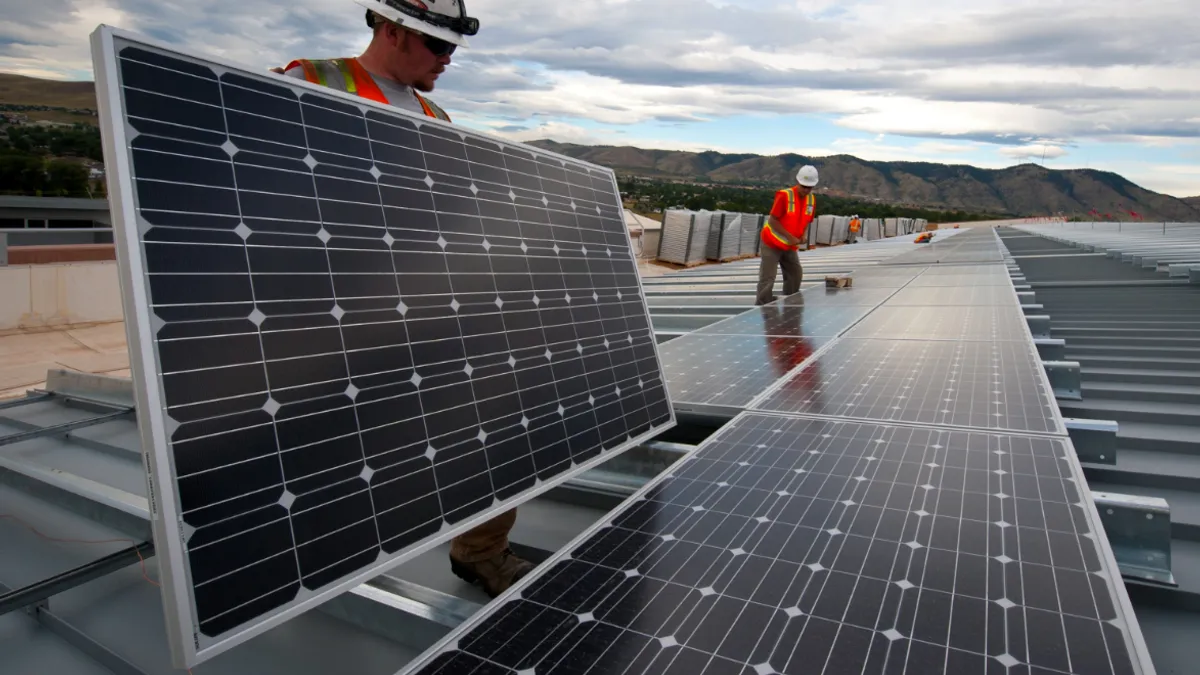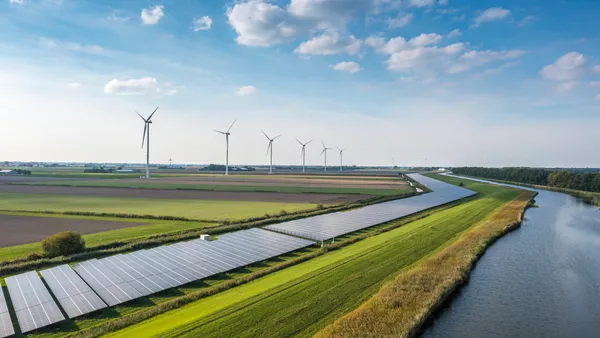Dive Brief:
- The U.S. Department of Energy announced this week that it will conduct a study of the costs and benefits of net metering to utilities, ratepayers, and the electrical grid as part of the agency's Grid Modernization Initiative. DOE said it expects to use the input to help inform a report to Congress.
- The report is part of an agency effort started in 2015 to ensure the electric grid is resilient, reliable, affordable, flexible and sustainable. The initiative runs through 2025 and is seeking more than $7 billion in annual economic benefit. Public comments are due before Oct. 30, 2017.
- State net metering proceedings have caught national attention as utilities and solar interests clash over proper compensation for residential customers with solar arrays. Roughly 40 states and the District of Columbia have net metering policies, though some have taken steps to phase them out.
Dive Insight:
The DOE document notes that net metering is one area where DOE could provide technical assistance to state policymakers, especially since the energy policy is state-driven.
"As part of this study, DOE seeks stakeholder input on existing studies (2012-present) assessing the costs and benefits of net metering, and the availability of data that can be used in conducting such studies," the agency said in its announcement.
DOE is interested in several areas of net metering, including: motivations and the policy context for conducting NEM cost-benefit studies; categories of costs and benefits; identifying methodological elements that can vary significantly in a benefit-cost analysis, and fundamental drivers and underlying market conditions.
The agency also noted some topics are outside the scope of its inquiry, including: costs and benefits of distributed solar generation beyond distributed solar’s impact on net metering; indirect cost and benefits, such as societal impacts and network effects; and recommendations on NEM design options or alternative compensation.
According to DOE's GMI plan, the agency expects the initiative by 2025 to enable industry action that delivers a 10% reduction in the economic costs of power outages, a 33% decrease in cost of reserve margins; a 50% decrease in the net integration costs of distributed energy resources.
"If achieved, these three outcomes would yield more than $7 billion in annual economic benefit to the nation," according to the report.
Utilities and solar interests have long clashed over the proper compensation rates for rooftop solar systems. Utilities say those customers don't pay their fair share for grid upkeep. Solar interests say utilities and regulators fail to account the full benefits of distributed generation on the distribution system — particularly in deferring costly infrastructure upgrades. It remains to be seen how these arguments will pan out as DOE collects information from stakeholders.
This isn't the first time DOE took a stab at examining net metering: former Secretary of Energy Ernest Moniz examined the impact of distributed generation and supporting policies in his final Quadrennial Energy Review. And the Lawrence Berkeley National Laboratory completed a review of existing data and previous studies, finding that net metering costs were quite minimal under small penetrations of distributed generation.















